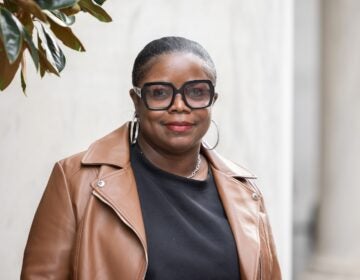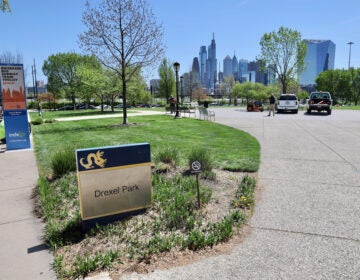Police: 14th District homicides down this year
While homicides across the city have increased this year, the 14th District has seen half as many homicides compared to this time last year, according to Capt. Joel Dales, who told residents that news at a meeting last week.
Joining Lt. Anthony Buchanico’s regular police service area meeting, Dales said the district, which covers portions of Germantown and West Oak Lane, has suffered three homicides this year compared to six by this time last year.
As of April 1, the city reported 87 homicides so far in 2012, which is up four from 2011.
In the 14th District, there were 28 murders total last year, which is one more than in the neighboring 39th.
Cooperation necessary
Dales explained the community can help fight crime by paying attention to their neighbors and children.
He mentioned an incident two weeks ago at Germantown and Chelten avenues in which a fight was prevented thanks to a tip.
According to Dales, nearly 100 kids were waiting for an after-school brawl between gangs called the “Cool Kids” and “Brickyard Mafia” but police were ready to break up the scene because parents had contacted them.
A woman who brought her two sons to the PSA meeting asked for help with crime associated with drug dealing she had witnessed outside her home.
Dales assured her that he already knew of issues at the intersection she mentioned and had plans to increase police presence there.
Nuisance bars remain a concern
When Dales mentioned a recent homicide which occurred at an Ogontz Avenue bar, other residents brought up the issue of nuisance bars causing problems in the district.
One woman, who requested anonymity because she is a witness in an ongoing case, responded that shutting down a bar is harder than one would think.
“You need to find weapons, drugs or have an aggravated assault or homicide,” she said.
“I need to have you on my team,” Dales replied. “What’s amazing is even with shootings, it is difficult to get a bar shut down. We work with the [District Attorney’s] office on these problem bars a lot, but they can challenge in court.”
Dales recounted the time he worked with a bar owner who was attracting the “wrong crowd” to implement security measures and changes.
“I understand these bars want to make money,” he said, “but they can do it the right way.”
Officer Calvin Johns said that a Nuisance Task Force, previously shuttered due to budget cuts, may be coming back. Dales added that community efforts are just as important as police presence in preventing violent crime.
“‘Lock them up’ is not always the answer,” Dales said. “Prison can be like college for crime.”
Crime aftermath discussed
Victim assistance police officer Sabra Johnson finished the meeting by outlining some services provided by the Crime Victims Compensation Program.
Meanwhile, Victoria Greene, the founder of Every Murder Is Real, said she is frustrated by the way media covers homicide.
“We don’t hear the stories behind it,” Greene said. “We see the faces, if we see that. We get the numbers, the statistics but we don’t know the story of that person. We don’t hear what that person was like or about. We don’t hear about their family. It’s treated like a object. You know okay, this is murder 204 this year. That type of tone, ‘Oh, we’ve had another homicide.’ It’s like the humanity is lost.”
Peter Miller, who owns RIP T-Shirt Gallery & Varieties at 12 W. Chelten Ave., said he sees that lost humanity every day at work, where he designs memorabilia including T-shirts, lockets and mugs.
“When someone is deceased, all their loved ones have left is a picture. They have that memory and we make these products so that they can carry and wear that memory,” he said of his business.
Miller realized most every person on a T-shirt or locket had been a victim of a homicide in the city.
The 46-year-old immigrant from West Africa said he plans to graduate this semester from Lincoln University with an undergraduate degree in systems management. He said he wants to move on from his business to help address social problems.
“If a community works with a shared vision, they can succeed,” Miller said. “But we have to be going in the same direction.”
****
Andrew Small is a student at Temple University. Philadelphia Neighborhoods, a NewsWorks content partner, is an initiative of the Temple Multimedia Urban Reporting Lab.
WHYY is your source for fact-based, in-depth journalism and information. As a nonprofit organization, we rely on financial support from readers like you. Please give today.







